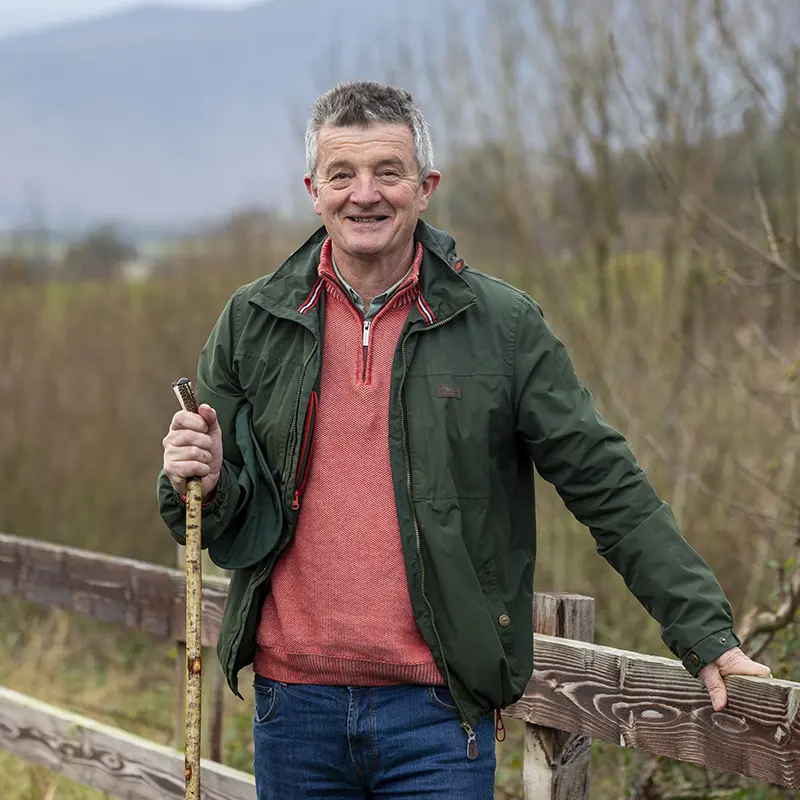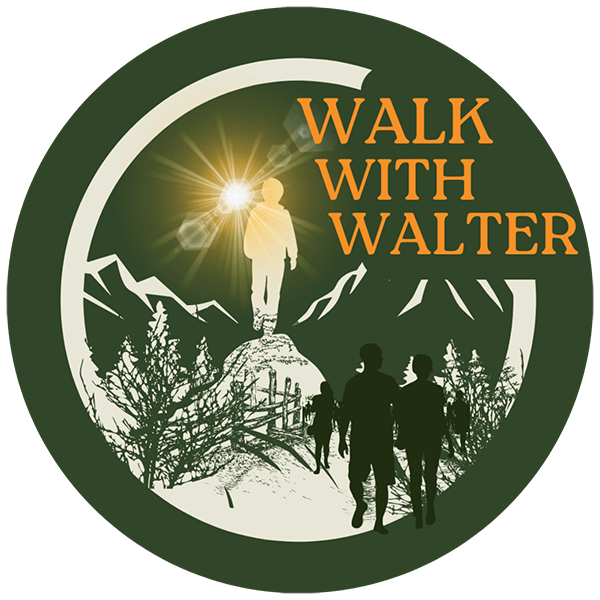Welcome to Walk With Walter Walking Tours
My name is Walter Power, and I live up a boreen from Nine-Mile House, in a townland called Mangan just 200 yards from the County border between Tipperary and Kilkenny in Ireland. I want to share some of the stories and the experience of walking on quiet country boreens and farmland with you. Born and reared on a farm that had sheep, pigs, hens, cows, cattle, calves, horses, and donkeys in the 1960s before changing into a specialized dairy farm.
Why
Retirement gave me the opportunity to train as a tour guide in Milltown Malbay, County Clare during 2023. The Office of Public Works employed me as a tour guide in Kilkenny Castle during 2024. I have been guiding walks around my local area for the last few years. I have listened to stories from my parents, grandparents, family, neighbours, and friends, read books, and walked this place all my life, and I’d love to share it with you.

Now
Walking is the way to really experience and engage with rural Ireland. You see it, breathe it, inhale it and learn about the Irish countryside in a way that works much better that from a vehicle. I’m passionate about this area with its beauty, peacefulness, history, folklore, and layers of stories, and I want to share it.
Walter’s Summary of Irish History
The Human Element
What has made the Irish different? We started with no one living here 10,000 years ago, followed by gradual immigration initially from the west coast of continental Europe and Britian. Next to arrive were the first farmers who had migrated from Syria and Egypt around 5,000 years ago, followed by the Celts from Eastern Europe, Ukraine, and Russia around 2500 years ago which is where most of our DNA comes from. In proportion to the previous population the Celts were the largest infusion of people into Ireland ever. Next to knock down the doors in the middle of the night were the Vikings from Scandinavia 1200 years ago followed by their cousins the Normans over 800 years ago. The plantation of Ulster which granted lands to Scottish people in the 16th and 17th centuries was the last large movement of people onto the island until the collapse of the Berlin wall which resulted in a couple of hundred thousand people coming from mainly Poland at the end of the 20th century/ beginning of the 21st century. We have immigration every year now from various parts of the world including almost 100,000 people from Ukraine because of the Russian invasion there in 2022.
Events And Conditions
Having listed where the Human ingredients of our population came from the next step is to identify the events and conditions that made us different. Being an island at the western most part of Europe gave us our distinct place and identity. The weather in Ireland being so temperate makes it one of the best places in the world to grow grass, potatoes, and unfortunately a perfect environment for fungi like potato blight to spread also. Belief systems including Christianity were and are a big part of our culture coupled with our use of storytelling down through the centuries. Roman Catholicism was prevalent in all of Europe but not in Ireland. We had Celtic Catholicism up until the arrival of the Normans. Invasion especially since the Normans arrived before 1200 and the ebb and flow of control of the Irish people up to the end of the 17th century shaped us.
The Penal laws were imposed after Cromwell’s brutality around 1650 which attempted to wipe out our Irish culture completely. The population of Ireland in 1600 was 1M people. The potato with its incredible yield, and capacity to almost provide a balanced diet by itself was a huge factor in facilitating the population to grow to almost 9M by the 1840s. Because Ireland was a colony whose main purpose was seen as a breadbasket for Britian there never was an industrial revolution in Ireland. That meant we had a hugely rural demographic totally surviving on farming. While we had many famines before and after 1840, our vulnerability to disaster was magnified by having half of our population being extremely poor with nothing to tide them over events such as famine. Having close to half our population dependent on the potato was a situation that developed over 2 centuries.
The failure of the potato in Ireland created a disastrous scenario of epic proportions. Ireland is the only country in the world with a smaller population today than in 1841. Catholicism and fear had a huge influence on Ireland up to 1973 when we joined the EEC with our independence from Britian and a civil war during that period also. Emigration drained Ireland of human beings but eventually the diaspora became a huge resource towards Irelands flourishing in the last half century. Irelands investment in education and encouraging businesses from around the world to create their EU headquarters here has been massive.
Despite our trials and tribulations or probably because of them we have a human resource on the island which is doing well. We work hard, we are great to tell stories, we are extremely interested in our history, we love music, craic, sport, fun and family. We enjoy today, look forward, while building on our past.
Walking is the way to really experience rural Ireland. You see it, breathe it, inhale it and learn about it in a way that works much better that from a vehicle.
I have listened to stories, read books, and walked this place all my life. I would love to share it with you.
